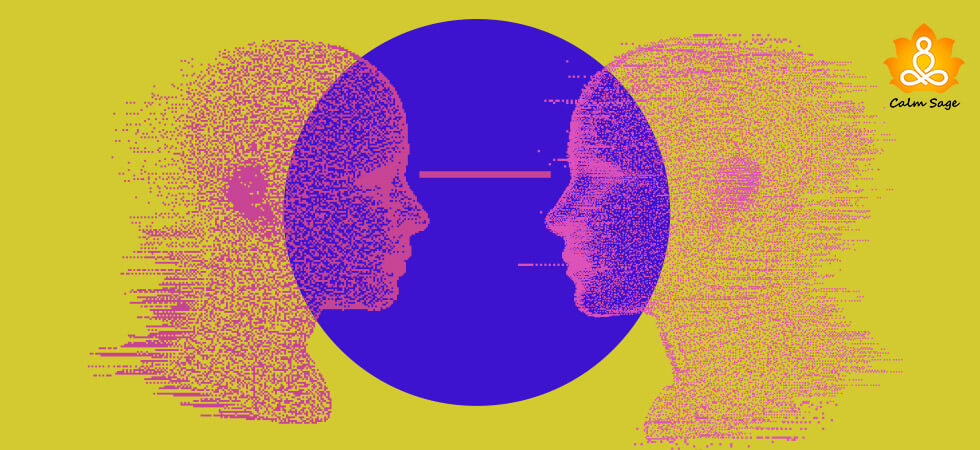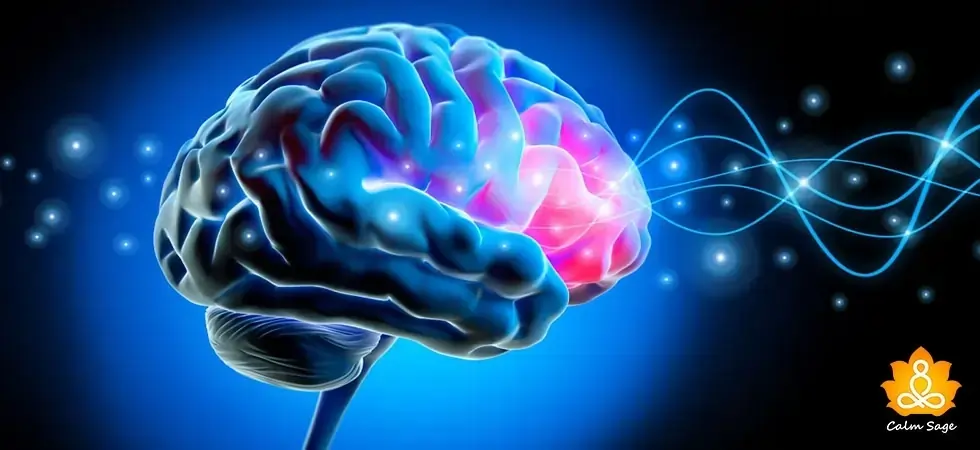What Is Dissociation? Psychology, Definition And Treatments

We often feel disconnected from ourselves, maybe due to stress, anxiety, or negative thoughts that life serves us every day! Dissociation in psychology means disconnection with ourselves, but do you know dissociation can be marked as a coping mechanism? Some people take the help of dissociation to deal with traumatic or overwhelming experiences.
In this blog, let us take a deep look at what dissociation is, five types of dissociation, how we can deal with dissociation, and more. So, let’s get started!
What is Dissociation?
In psychology, dissociation is a disconnection of the sense of self, sensory experience, thoughts, or personality history. There are different types of dissociation in psychology, for example, when someone struggles to remember important information about their life or information related to a certain period of time, they might be experiencing dissociative amnesia.
Some people use dissociation as a defense mechanism to cope with overwhelming or traumatic experiences. In other cases, dissociation can also occur as a mental health disorder. For example, people struggling with post-traumatic stress disorder (PTSD), borderline personality disorder (BPD), or schizophrenia often experience dissociation as a symptom.
What Does Dissociation Look Like?
Dissociation means disconnection, in most cases, people lose a sense of reality. For example, they lose sense of time, identity, place, or other important information about themselves. According to research, dissociation is likely to disrupt four important functioning areas such as consciousness, memory, identity, and self-awareness.
Types of Dissociation
According to the Diagnostic and Statistical Manual of Mental Disorders 5th Edition (DSM-5-TR), there are five types of dissociation:
- Depersonalization-derealization disorder (DPDR): DPDR occurs when someone feels detached from their own thoughts or body. For example, people struggling with DPDR often observe their body as an outsider’s body.
- Dissociative identity disorder (DID): DID was previously referred to as multiple identity disorder wherein a person has two or more different and persistent personalities. It can also be referred to as “split personalities.”
- Dissociative Amnesia: Dissociative amnesia occurs when some forgets important personal information about themselves. For example, a person struggling with dissociative amnesia might lose memories related to past events.
- Identity Confusion: People struggling with dissociative disorders often experience a blurred sense of real self or identity which can result in identity confusion.
- Identity Alteration: Identity alteration happens when someone starts acting like a different person living in a different situation.
Symptoms of Dissociation
Dissociation generally ranges from a mild sense of detachment to severe disconnection from reality. Below listed are some of the important symptoms of dissociation:
- Altered sense of place, time, and other important information
- Blanking out
- Constant distortion or blurred sense of real-life
- Detachment or disconnection from your emotions
- Emotional numbness or feeling distant from your surroundings or yourself
- Feelings of daydreaming
- Inability to remember important information or memory related to your life
- Memory loss
- Sudden mood changes
Causes of Dissociation
Below listed are some of the common causes of dissociation:
1. Alcohol or Drug use: Substance use can be the main cause of dissociation. Research shows that addiction can increase the levels of dissociation, especially in people struggling with PTSD.
2. Trauma: Research shows that dissociation is highly linked with trauma. Dissociation is used as a defense mechanism to maintain distance from a traumatic or overwhelming situation.
3. Presence of other mental health conditions: Presence of mental health conditions can also develop dissociation. For example, PTSD is often identified by the symptoms of detachment and dissociation.
4. Sleep deprivation: Sleep deprivation can also cause dissociation as inadequate sleep can result in dysregulated emotions and behavior.
5. Anxiety and depression: Underlying anxiety and depression can also cause dissociation as dissociation can be a way to cope with negative feelings, sadness, or hopelessness.
6. Stress: Some major stressful events can also cause dissociation as a coping mechanism.
Related Mental Health Conditions to Dissociation
Dissociation is a part of dissociative disorders, apart from this, dissociation can also be a symptom of other mental health conditions such as:
- Acute stress disorder
- Anxiety
- Attention-deficit hyperactivity disorder (ADHD)
- Borderline personality disorder (BPD)
- Epilepsy
- Migraines
- Mood disorders or affective disorders
- Obsessive-compulsive disorder (OCD)
- Depression
- Post-traumatic stress disorder (PTSD)
- Phobias
- Schizophrenia
- Substance use disorder
Diagnosis and Treatment of Dissociation
If you think you or your loved one might be struggling with dissociation, you must connect with a mental health professional to seek a diagnosis and the right treatment approach.
In order to be diagnosed with dissociation, your mental health professional is likely to ask about your medical history, assessment of your symptoms, or perform a physical examination.
Below is the diagnostic process of dissociation followed by a mental health professional:
- Clinical-Administered PTSD Scale (CAPS)
- Clinical interview
- Dissociative Experiences Scale (DES) scale
Coming forth to the treatment process, please know that treatment of dissociation depends on the needs and severity of the mental health issue. Psychotherapy and medications are the frontline treatment methods for dissociation, in some cases, the combination of both can also be prescribed.
Psychotherapy
Psychotherapy is really effective in treating dissociation. Below are some effective psychotherapy options prescribed by a therapist for treating dissociation:
- Cognitive Behavioral Therapy (CBT): CBT helps in replacing negative thoughts and behaviors with positive ones. Additionally, it also teaches or practices healthy coping skills for negative behaviors or traits.
- Dialectical Behavioral Therapy (DBT): DBT is a form of CBT that teaches positive coping skills to manage emotions effectively and avoid harmful emotions or behaviors.
- Eye Movement Desensitization and Reprocessing (EMDR): EMDR is based on the principles of CBT that help in reducing psychological distress. This type of therapy is more effective for traumatic situations.
Medications
Medications like antidepressants and anti-anxiety drugs are generally prescribed to treat specific symptoms such as sleep issues, mood disorders, or anxiety. In cases of dissociation mixed with schizophrenia, a mental health professional is likely to prescribe antipsychotic medications.
Self-Help Strategies to Cope with Dissociation
Along with therapy and medications, here’s what you can do to treat dissociation effectively:
1. Maintain a strict eating and sleeping routine: Along with the treatment process, always maintain a strict sleeping routine so that you can get an adequate amount of sleep each night. Additionally, focus on eating healthy nutritious food to improve overall well-being.
2. Keep your body and mind active: Therapy sessions can sometimes be really overwhelming or confusing, therefore, always work on keeping your body and mind active so that you can get aligned with the treatment process.
3. Track your symptoms and learn to manage them: When we struggle through issues, nobody knows about our symptoms and triggers better than us, therefore, learn more about your symptoms, track them, and try techniques that can help you manage them.
4. Practice mindfulness-based meditation techniques: For those stressful days, practice mindfulness-based meditation techniques to combat stress, depression, and anxiety effectively. Mindfulness-based techniques can help you focus on the present and pay attention to what is happening internally.
Conclusion
Dissociation (or disconnection with self) is generally a response to a traumatic event which can happen anytime or anywhere. Instead of using it as a defense mechanism, learn to fight the overwhelming situation and put yourself on the road of self-healing so that you can improve your overall well-being. Additionally, always communicate your needs with your mental health provider or loved ones for effective healing.
I hope this blog helps you understand what dissociation is in psychology and how we can deal with it.
For more such content, connect with us through all social media platforms.
Thanks for reading!




















